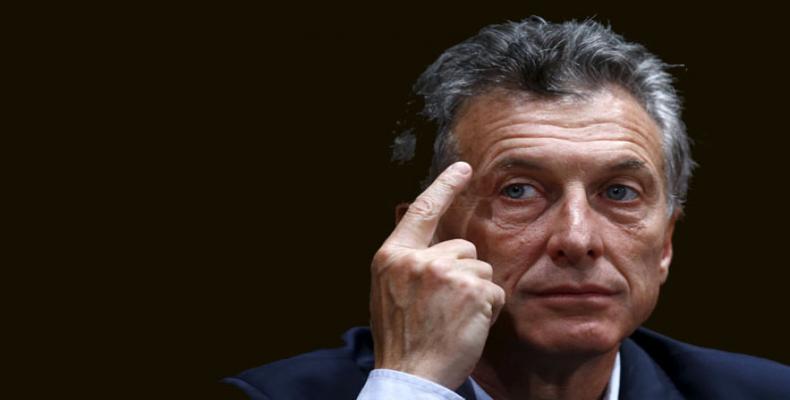Buenos Aires, September 5 (RHC)-- Argentina’s president has announced a series of “emergency” austerity measures — including cutting the number of ministries in more than half — to slash spending and supposedly save the national currency, the peso, which continues to fall against the dollar.
President Mauricio Macri said in a televised speech that his country was facing “an emergency” that required massive spending cuts and aBgricultural taxes. The measures include stiff taxes on exports and massive spending cuts, he said, adding that he was demoting more than half of his ministers and reducing the number of ministries from 22 to 10 to cut spending.
The measures, however, seemed to have no immediate effect on the market, as inflation was running at more than 30 percent and the national currency was still tumbling after the announcement. The peso, which has lost half of its value against the dollar since January this year, fell a further 3.5 percent at the beginning of the week.
The austerity program, instead, prompted anger among people, who took to the streets in the capital, Buenos Aires, to protest. Many remember the country’s worst ever financial crisis in 2001-2002, when devaluation, high inflation, and currency controls ultimately led to political turmoil and weeks of protests across the country. Investors are also increasingly concerned that the IMF aid may not be enough.
Argentina, Latin America’s third-largest economy, has $24.9 billion in peso and foreign currency denominated debt payments due next year, official data shows. The president, who took office in December 2015 on a promise to reform the economy, blames the crisis on “matters that are out of our control.”


